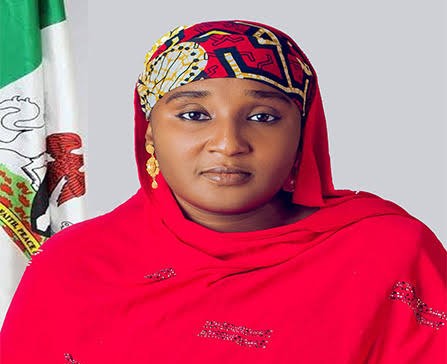Introduction:
The Renewed Hope Agenda of President Bola Ahmed Tinubu, as encapsulated in his eight-point policy directives, projected to guide governance in the different sectors of the national economy, singularly impacted positively on the education sector, particularly the Technical and Vocational Education and Training (TVET) sector. TVET has received more attention in the last two years, more than what was done in earlier 30 years. The oversight of the TVET sector was vested in the care of the National Board for Technical Education (NBTE), under the leadership of Professor Idris M. Bugaje.
Specifically, one of the eight-point policy directives of Renewed Hope is to expand access through quality education especially in the Technical and Vocational Educational Training (TVET) sub sector of the Federal Ministry of Education in order to empower citizens and drive national development by means of a practical approaches in building national infrastructure.
In accordance with this directives, under the oversight of the Hon Minister of education, Dr Tunji Alausa, CON, NBTE made landmark improvements on the Technical and Vocational Educational sub-sector, firming up some far-reaching internal governance and administrative policies to strengthen the overall performance with better service delivery in achieving the goals of the Renewed Hope Agenda in the TVET sub-sector under the watch of NBTE.

PRESIDENT AND COMMANDER IN CHIEF
A Bastion of Innovative Leadership:
The transformation in the years 2024-25, the National Board for Technical Education (NBTE) under the leadership of Professor Idris M. Bugaje emerged as a beacon of innovation, collaboration, and institutional reform in Nigeria’s Technical and Vocational Education and Training (TVET) sector. Once seen primarily as a bureaucratic clearing house for program approvals, the Board is now widely viewed as an engine room for skills development, international linkages, and new models of industry-focused training. The compendium for this period reads less like a routine government report and more like a chronicle of determined change, a story of how leadership vision, strategic partnerships, and technology-driven processes can move an entire sector forward.
Professor Bugaje’s arrival at NBTE brought with it a formidable track record. An academic with years of research and institutional management behind him, he had previously served as Rector of Nasarawa Federal Polytechnic and Kaduna Polytechnic, as well as Director-General of the National Research Institute for Chemical Technology (NARICT). These roles honed his ability to combine deep subject knowledge with practical, results-oriented leadership. At NBTE, this translated into a philosophy of “doing more, faster, and with lasting impact,” a theme that is evident across the Board’s 2024/25 initiatives. His style — inclusive yet decisive — has enabled the institution to engage with diverse stakeholders ranging from roadside artisans to international Ministers.

The New TVET Initiative, 2025
The Federal Ministry of Education (FME) has launched a new Technical and Vocational Education and Training (TVET) initiative to provide Nigerian youths with industry-relevant skills. This Renewed Hope program, which aims to address youth unemployment and promote entrepreneurship, offers three main pathways:
Master 6 (6-month program): A short-term, practical training program for individuals with a valid National Identification Number (NIN). It requires no prior educational qualification.
Master 12 (1-year program): A more advanced program for deeper technical training, open to individuals with a valid NIN and some form of prior formal or informal training.
Technical College Track (3-year program): This is the conventional TVET pathway for junior secondary school graduates aged 13-18.

All programs under the initiative are tuition-free and include a monthly stipend, starter packs, and access to low-interest loans. The training focuses on 25 different trade areas, and trainees will be assessed under the National Skills Qualification Framework (NSQF) and issued recognized certificates.
The National Board for Technical Education (NBTE) plays a crucial role in the new TVET Initiative. As the organ of the FME charged with regulating TVET institutions in Nigeria, the NBTE is collaborating with the ministry and other stakeholders to implement the program. The NBTE’s responsibilities include registration of the Skills Training Centers and Master-crafts-persons to be involved in impacting hands on skills to the trainees, co-developing curricula and occupational standards for the training, and regulating the skills acquisition, assessment, and certification processes. So far over 1.3 Million Nigerians have applied and before end of August, the roll out of training shall start by matching applicants with neighbourhood training centers for the chosen skill areas.
Preliminary assignments:
One of the most visible areas of progress was in quality assurance, the core function that ensures Nigerian Polytechnics, allied and specialized TVET institutions deliver training that is relevant to the job market. In 2024 alone, NBTE teams visited seventy-seven institutions for an array of evaluations — from accreditation and resource inspections to carrying capacity checks and programme verifications. These visits covered a remarkable 950 individual programme assessments. Of these, 479 earned full accreditation, four received interim status, and 220 were approved to commence newly. Only eight were denied commencement, a testament to the growing compliance with NBTE standards and the seriousness with which institutions now approach quality benchmarks.
These quality visits were not perfunctory box-ticking exercises. Teams assessed whether institutions had the human resources, teaching facilities, and equipment to deliver on the curricula. They examined laboratories, inspected workshops, and verified staff qualifications. The Director of the Polytechnic Programmes Department, Dr. Mrs. Fatima Kabir Umar, was clear about why these matters, noting that strong quality assurance builds trust in qualifications, improves labour market outcomes, and reduces the risk of public funds being wasted on substandard programs.

Digital Quality Assurance Systems:
A major breakthrough in this process was the embrace of digital quality assurance systems. The old paper-heavy inspections were replaced with a streamlined online process in which institutions upload their accreditation data to NBTE’s secure platform. This digital pivot is not just about efficiency; it makes the process more transparent and reduces opportunities for manipulation. Early adopters such as Al-Hikma Polytechnic in Karu, Time-On Kairus Polytechnic in Lagos, and Abubakar Tatari Ali Polytechnic in Bauchi proved that it was possible to meet all requirements without the costly, slow paperwork of the past.
Allied and specialized institutions also benefited. In this sub-sector, 127 programs across 49 institutions were granted accreditation, while 163 programs in 71 institutions were cleared to commence. New institutions were not left out: twenty-six public institutions were granted recognition status, giving them the green light to start admitting students. For both the polytechnic and allied institutions segments, the message was clear: NBTE’s quality bar was rising, and only those able to meet it could participate in Nigeria’s formal TVET landscape.

Research And Innovation:
Beyond policing quality, the Board turned its attention to research and innovation. A symbolic and substantive move was the revival of the Nigerian Journal of Technical Education (NJTE), which had been dormant since 2015. The journal now carries an International Standard Serial Number for its online edition and is registering articles with Crossref to give each one a unique Digital Object Identifier (DOI). This means Nigerian TVET research is not only being produced but is now more visible to the global academic community than ever before. Since its revival, NJTE has published four editions, and starting from 2024, it will be released twice a year in July and December.
The NBTE’s internal culture also shifted toward research dissemination. A monthly academic paper seminar was launched, giving staff the platform to present on topics ranging from engineering and science to humanities and policy. In just over a year, thirty-six articles from eighty different authors have been presented, many of which feed directly into policy-making and sectoral strategies. This is more than an internal morale booster — it positions NBTE staff as thought leaders in the wider education and labour market conversation.
Digital transformation became more than a catchphrase under Prof. Bugaje’s watch. The Board introduced Technology-Enabled Quality Assurance (TEQA), aligning with Nigeria’s broader push toward a digitally-driven economy and the Fourth Industrial Revolution. TEQA eliminated the need for bulky printed self-study questionnaires, replaced many physical visits with remote assessments, and introduced QR-code authentication for NBTE documents to eliminate forgery. Over 1,300 TVET staff across all six geopolitical zones were trained to use the system, ensuring nationwide readiness. TEQA also enabled NBTE to keep functioning seamlessly during disruptions, with remote work capabilities now built into its operational DNA.
Infrastructure Planning:
The assessment of physical development master plans for proposed institutions was digitized, incorporating Geographic Information Systems (GIS) to evaluate site suitability in terms of accessibility, environmental sustainability, and regional balance. Remote assessment tools allowed NBTE to cut approval timelines dramatically, giving green lights to qualified institutions without the traditional months-long bottlenecks.
Intra-Border And Cross-Border Partnerships:Recognizing that no single institution can drive change in isolation, NBTE has actively cultivated partnerships with both local and international stakeholders. These collaborations range from industry linkages with manufacturing and engineering firms to alliances with development partners and donor agencies. A strong example is the engagement with Huawei and other technology leaders to provide capacity-building for lecturers, ensuring they are equipped with the skills needed to teach cutting-edge subjects. Such partnerships have created a bridge between classrooms and workplaces, ensuring graduates are prepared for industry demands from day one.
International development agencies also entered the fold. The UNESCO BEAR III Project provided resources for certifying informal agro-processors in Kano State, reskilling apprentices, and closing equipment gaps in the value chain. NBTE’s longstanding link with the National Youth Service Corps (NYSC) was deepened through reforms to the Students Industrial Work Experience Scheme (SIWES). The duration of Mandatory Industrial Training for National Diploma students was reduced from twelve to nine months to make room for more targeted hands-on experience. A unified completion certificate was introduced to ease both Higher National Diploma admissions and NYSC mobilization, with security features to prevent forgery.
In the agricultural sector, NBTE worked with the Federal Ministry of Livestock Development, the China Gezhouba Group Corporation, and other partners to integrate crop and livestock farming into TVET curricula. This was not an abstract idea: the initiative comes with a roadmap for securing funding, regulatory approvals, and technical expertise, with the goal of turning institutional farmlands into hubs of practical teaching, research, and revenue generation.
Welding, a critical trade for both industry and infrastructure, was given a futuristic twist when NBTE signed a Memorandum of Understanding with WhiteCloud TVET Solutions to deploy augmented reality welding simulators in selected institutions. This move drastically reduces the cost of consumables while increasing student practice time. Another forward-looking partnership saw NBTE join hands with the Nigerian Defence Academy’s Centre for Innovation and Creativity and ICE Hub Technology to train technicians in converting petrol vehicles to run on Compressed Natural Gas, supporting Nigeria’s Presidential CNG Initiative.
Stakeholder Community Service and Outreach
Beyond its regulatory role, NBTE engages actively with communities and stakeholders at the grassroots. This includes outreach to informal sector workers, artisans, and small-scale entrepreneurs, offering them pathways to formal recognition of their skills. Initiatives like the Recognition of Prior Learning (RPL) programme launched for the first time in 2025 across the country, has provided master craftsmen and women with nationally recognized qualifications, improving their access to better jobs, funding opportunities, and apprenticeships. Such programmes deepen the connection between TVET and the communities it serves.
A Landmark Year For Nigeria:
Internationally, 2024/25 will be remembered as the year Nigeria finally joined WorldSkills International (WSI), after over a decade of stalled efforts. Membership opens the door for Nigerian artisans and students to compete on the global stage, benchmark skills against the world’s best, and attract investment in training infrastructure. The entry was secured after NBTE compiled and submitted a successful application, and Nigerian delegates proudly received the associate membership certificate at WorldSkills Lyon 2024.
Other International Engagements:
This was not the only China-linked achievement. Through the Nigeria National Occupational Standards Development Project, launched in partnership with the China-Vocational Education Alliance (CAVEA), NBTE began co-developing training standards in critical trades. Five Nigerian lecturers spent months in China as part of a teacher capacity-building program, returning with advanced technical knowledge and innovative teaching methods. The exposure extended beyond classrooms: faculty toured high-tech training labs, engineering workshops, and companies operating under global quality standards.
Back home, Prof. Bugaje’s passion for TVET promotion and advocacy manifested in both high-profile speeches and grassroots market interventions. One of the boldest moves was the formalization and remodeling of Kaduna’s Old Panteka Market — the largest informal technology hub in Africa, with over 38,000 artisans and apprentices. Under a new arrangement, Panteka now operates as a certified training center under the Nigerian Skills Qualification Framework, meaning its graduates can obtain credentials recognized by employers both in Nigeria and abroad. The Kaduna State Government’s remodeling project added modern facilities including a clinic, fire station, ICT center and road infrastructure.
Workshops And Interactive Sessions:
The Board also engaged stakeholders through events like the five-day workshop “Skills: Beyond Degrees and Diplomas,” which trained educators in open-source tools and AI-assisted research methods, and through the creation of the Nigeria Polytechnics Foundation (NIPOF) to fund and sustain innovation.
Community outreach took a practical turn when NBTE donated a transport bus to the National Association of Polytechnic Students (NAPS) to support their mobility and activities. The Board also partnered with the Petroleum Technology Development Fund (PTDF) to host a round-table on aligning TVET with the skills needed for Nigeria’s Ajaokuta-Kaduna-Kano Gas Pipeline project, a discussion that brought together industry leaders, educators, and policymakers.In October 2024, NBTE celebrated Customer Service Week, holding sensitization campaigns, customer feedback sessions, and staff training to reinforce a culture of service excellence.
Achieving Renewed Hope Targets And Conclusion:
If there is a thread running through all these diverse activities, it is the conviction that skills — relevant, certified, and adaptable — are the bedrock of economic development. Under Professor Idris Bugaje, NBTE has not only defended this conviction but has embedded it into systems, partnerships, and policies that promise to outlast his tenure. This compilation is thus more than an annual report, it is a record of a sector finding its voice and a country taking its place in the global skills conversation.
All these achievements by the NBTE under the direction and able leadership of Professor Idris M. Bugaje, have been made possible through the support of the Federal Ministry of Education and relevant government parastatals to enable the NBTE to achieve the goals of Renewed Hope set by His Excellency, President Bola Ahmed Tinubu, GCFR.















Leave a comment